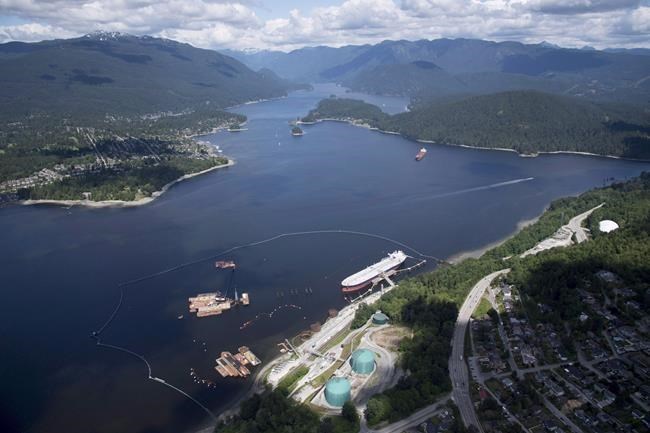 It’s a huge victory for Indigenous leaders and pipeline opponents, but by no stretch of the imagination is the Trans Mountain expansion project over.
It’s a huge victory for Indigenous leaders and pipeline opponents, but by no stretch of the imagination is the Trans Mountain expansion project over.
Premier John Horgan predicted Thursday that the epic struggle will fade from the agenda, at least for a while. Contractors started downing tools right after the Federal Court of Appeal decision was released. The Burnaby protest camp is dismantled. There’s nothing happening to fight over.
But the decision is more likely to force a pause to regroup, rather than kill the project outright. And the main proponent is the government of Canada, which still has a lot of clout, no matter how clumsy it is about using it.
The federal Liberals got a detailed lesson in what’s required on First Nations consultation when a court shredded the previous government’s efforts on the Northern Gateway pipeline proposal. It didn’t seem to learn much.
This is the second multibillion-dollar pipeline project through B.C. in three years to run afoul of Indigenous consultation requirements.
Kinder Morgan shareholders approved the deal to sell the existing line and the twinning project to Canada almost exactly as the federal court of appeal ruling came out. So Prime Minister Justin Trudeau is all-in.
Alberta Premier Rachel Notley also has no other options. The Trans Mountain expansion was one part of a multibillion-dollar energy jigsaw puzzle the pair put together two years ago.
Here’s how it was laid out. Notley imposed a cap on oilsands emissions and signed on to Trudeau’s national climate-change strategy. Trudeau killed the Northern Gateway line, but approved the Trans Mountain line and a smaller eastern one. To mollify B.C., the expensive new ocean protection plan was announced and a tanker moratorium of sorts was declared on the north coast.
If the Trans Mountain piece is taken out of the puzzle, nothing else fits together and the whole picture fails, just a year before federal and Alberta elections.
The decision is appealable, and enough parties are involved to make that very likely. And the closer you read it, the less it looks like a death warrant.
The judges were critical of how the National Energy Board handled engagement with First Nations. Their ruling rescinds the approval the NEB granted. And it says the entire marine side of the project was left out of the review in error and should be part of the argument.
But it also suggests remedies that involve essentially backing up and doing the latter phase of consultation differently. The heart of the decision is the conclusion that government has to do more than receive and understand Indigenous concerns. It has to engage in “considered, meaningful two-way dialogue.”
Federal officials listened and recorded the concerns and passed them to cabinet. But they didn’t go over them point-by-point, talk about them and demonstrate that the specific and real concerns were getting serious consideration.
The elaborate framework for the consultation process was OK’d by the court. It was the execution of the requirements built into that framework that failed.
The court ordered the project be sent back to cabinet for “prompt” redetermination, keeping the previous consultation shortcomings in mind.
The re-do should be “specific and focused,” and involves only the third of three phases.
The ruling said: “The end result may be a short delay, but, through possible accommodation, the corrected consultation may further the objective of reconciliation with Indigenous Peoples.”
On the other hand, the project could fall apart entirely.
The other key part of the decision is about marine shipping.
The NEB originally minimized the environmental impact of the overall project by deciding that all the marine shipping issues that arise once the oil arrives for the tankers at the pipeline’s Burnaby terminus were outside its jurisdiction.
The court wants that decision reconsidered. Marine issues got some attention in the initial hearings, but including them formally in another review would be a major undertaking.
Still, there’s enough pressure to expect they’ll try to carry on.
Trudeau claimed a $4.5-billion stake in a horse that’s been declared at least temporarily lame right at the starting gate.
He can’t shoot the horse, so he has no other option but to nurse it back to health and try to carry on.



